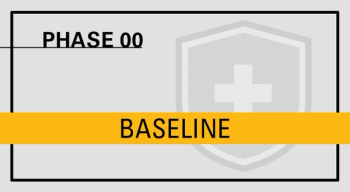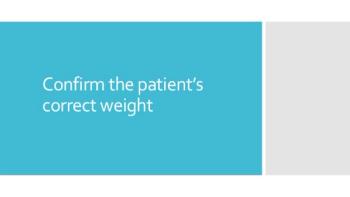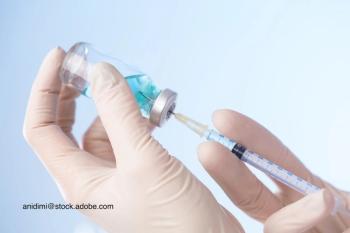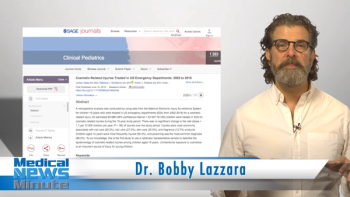
Thyroid disorders present with overt symptoms or insidiously with few signs of disease. Here’s how pediatricians can identify and effectively treat children with thyroid disease or refer patients for further evaluation.

Thyroid disorders present with overt symptoms or insidiously with few signs of disease. Here’s how pediatricians can identify and effectively treat children with thyroid disease or refer patients for further evaluation.

Environmental issues have long had myriad impacts on fetal and child development. A recent study suggests that expectant mothers living near oil and gas wells may be more likely to give birth to an infant with congenital heart defects (CHD).

For a child with a developmental disorder, the pathway from screening for autism spectrum disorder (ASD) to diagnosis of ASD to lifelong care takes place in the child’s medical home.

Could encouraging parents and teenagers to discuss sex lead to the teenager practicing safe sex in the future? A recent meta-analysis examines the effectiveness of “the talk” on delaying sexual initiation and future safe sexual practices

Elopement and wandering are serious problems for families of children with autism spectrum disorder (ASD). Here are practical ways primary care providers (PCPs) and families can work together to keep their children safe.

A noticeable gender gap exists between boys and girls when it comes to vaccination rates for human papillomavirus (HPV). Here’s why healthcare providers need to up their game when it comes to HPV vaccine for boys.

Children who are prescribed montelukast for managing their asthma are nearly twice as likely to experience a neuropsychiatric event as asthmatic children who are taking other asthma maintenance medications.

When a student athlete wants to return to playing following a concussion, there are 6 phases that that athlete will need to follow to get pack to the field.

How effective is hydroxyurea in preventing acute care for children with sickle cell disease (SCD)? A new study examined the use of hydroxyurea in children with SCD who were covered by Medicaid.

Epinephrine is essential for treating anaphylaxis in children, and autoinjectors are the preferred method for administering epinephrine in an anaphylactic emergency. There is no one-size-fits-all approach to the optimal dose for all children, so here is expert advice about how to choose what’s best for your patient.

Encouraging exclusive breastfeeding is one key elements to giving infants a good start. Unfortunately, some mothers aren’t able to maintain exclusive breastfeeding once they go back to work. A new study looks at whether extending maternity leave could improve exclusive breastfeeding rates.

Children with asthma who use a web- and mobile–web-based self-management tool show high and sustained self-monitoring and improved asthma outcomes, a study in asthmatic children showed.

August is National Immunization Awareness Month, and the annual observance promotes the benefits of on-time vaccination for patients of all ages. Here are free materials to help you spread the word.

Attention-deficit/hyperactivity disorder (ADHD) may affect a significant number of children in a pediatric practice. This article reviews diagnostic criteria, comorbidities, and complications of ADHD as well as pitfalls that confront the treating pediatrician.

A House subcommittee is investigating Juul Lab’s marketing of its vaping devices directly to adolescents as a safe alternative to smoking cigarettes.

Applying sunscreen as often as manufacturers recommend results in plasma concentrations of sunscreen’s 4 active ingredients that exceed the threshold for safety concerns established by the US Food and Drug Administration (FDA), according to a recent study.

Teenagers who use prescription opioids in a nonprescription manner may be more likely to move onto using heroin, according to a recent study.

Some birth defects may carry an increased cancer risk, according to a recent report, but researchers stop short of recommending routine screening.

A recent study investigates the prevalence of asthma in minority groups and how often they turn to the emergency department (ED) for management.

More parents vape to try and protect their kids from secondhand smoke, but it doesn’t really work that way.

Poorer educational outcomes may need to be added to the list of the potential outcomes for children who have type 1 diabetes.

Although in-flight emergencies are well-characterized events when they occur with an adult, the data for in-flight emergencies that occur in children are lacking. A new study published in the Annals of Emergency Medicine emphasizes the need for more information.

Boys and girls experience similar rates of migraine as they approach puberty, but new findings reveal that girls’ incidence of migraine spikes after early menarche.

Avoiding medication errors can be even easier if you use these 12 tips.

The rotavirus vaccine is working, the Centers for Disease Control and Prevention (CDC) concludes in a new report, but there is still room for improved vaccine coverage.

Pediatricians spend precious time talking with parents whether they’re vaccine hesitant or vaccine opposed. Yet the time pediatricians spend trying to understand and educate families who are hesitant or against vaccinating their children is important and can be effective, according to Tina Q. Tan, MD.

A new glucagon drug can treat severe hypoglycemia without an injection in persons aged 4 years and older.

Mark R. Schleiss, MD, discusses the differences between parents who are vaccine hesitant and those that are outright vaccine refusers. One can be reached and the other cannot.

For Contemporary Pediatrics, Dr Bobby Lazzara discusses a retrospective analysis published in Clinical Pediatrics that looked at the incidence of accidents involving cosmetics in children aged 5 years and younger.

Girls have been the focus of stories looking at the early onset of puberty, but a new study from Sweden indicates that some boys also may have been undergoing early puberty.